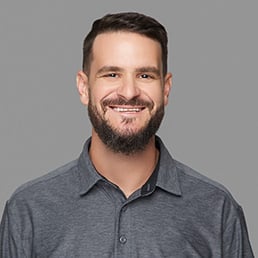Everything You Need to Know About Group Therapy: Types, Benefits, and More!
Group therapy is a vital part of mental health care and addiction treatment. This form of psychotherapy offers a support system for the patients. Consequently, it helps facilitate recovery from mental disorders.
Aside from addressing addiction and psychological disorders, it enhances communication and social skills, nurturing individuals on their path toward personal growth.

Continue reading this article to explore group therapy types, benefits, effectiveness of group therapy, and more!
Table of Contents
Understanding Group Therapy
As the name suggests, group psychotherapy is a treatment that involves several patients, either a small group or a larger group ranging from 5 to 15.
Typically, one or more medical practitioners or facilitators lead those therapy sessions. You can find this type of treatment in many health facilities. These include hospitals, mental health providers, other clinics, community centers, and more.
The goal is to foster a culture of support, helping patients improve their communication within the group.
However, this type of treatment extends beyond that. It aids in behavior and interpersonal relationship skill adjustment, preparing the patients for social interaction. This approach equips individuals to return as functioning members of society.
The types of activities in this therapy differ from one group to another. However, you can expect the sessions to last around 1-2 hours and meet the members once a week.

What Are The Types Of Group Therapy?
As you might have guessed, group therapy isn’t a one-size-fits-all approach. It differs depending on the mental condition and substance use disorder.
That said, the type of therapy usually falls into five common categories. These include:
1. Cognitive Behavior Therapy
Group psychological treatment includes cognitive behavior therapy (CBT). For those wondering, CBT is a form of talk therapy that’s used to treat a wide range of mental health concerns and addiction problems.
This approach focuses on the relationship between thoughts, feelings, and behavior. It identifies negative thinking patterns as one of the primary reasons behind self-destructive actions.
Cognitive behavior therapy is an intervention that helps individuals overcome those negative cycles of unhelpful thoughts. Its goal is to teach better coping skills in handling mental health problems and addiction. Consequently, the patients lead better lives.
The best part? Group CBT isn’t exclusive to health problems. It can be a valuable tool to help people avoid distortive thinking patterns, especially when stressed out.
2. Interpersonal Therapy
As the name implies, interpersonal therapy (IPT) focuses on improving communication and resolving relationship problems.
IPT recognizes that external factors, like relationships and life events, can impact mood and lead to depression.
Individuals benefiting from IPT usually have social anxiety. They can also have difficulties trusting people, forming meaningful relationships, and struggling with loneliness.
Typically, interpersonal group therapy is short, consisting of 12 to 16 sessions. It includes activities that focus on developing better social interactions.
In group interpersonal therapy, you focus on understanding your own and others’ feelings, thoughts, and reactions. That fosters a supportive environment where individuals learn from each other, improving their emotional and social well-being.
3. Skill Development Groups
Like cognitive behavior therapy, skill development group therapy recognizes that negative thoughts and emotions are the roots of mental health problems.
Usually, people with substance use disorder lack the life skills needed to cope with their addiction. That’s when skill-development groups come to the rescue.
Typically, this treatment method runs for 45-90 minutes and for a few weeks. The group size ideally ranges from 8 to 10 participants.
While the sessions vary from one health facility to another, the goal of this treatment is to help people maintain sobriety. It teaches strategies to manage emotion and avoid triggers of use.
The therapists also focus on methods that help individuals refuse offers of drugs and cope with urges to abuse them.
4. Psychoeducational Therapy
Psychoeducational therapy is another therapy type commonly used in treating addiction problems. It also follows cognitive behavior therapy principles.
However, unlike skill development groups, this therapy focuses on the educational aspect. So, it doesn’t pivot around changing the client’s feelings or thoughts.
The sessions are typically interactive classes that help people learn about their disorder and how it impacts their lives.
Led by experienced educators, these groups include videos, discussions, and lectures. The goal of such knowledge is to help patients become more self-aware and, thus, make smarter choices.
5. Support Groups
Unlike other types of group therapy, support groups aren’t for treatment. Instead, its primary goal is to bring people with similar issues together.
During these sessions, individuals share their knowledge and experiences, which can be helpful to other members.
Typically, the members discuss their challenges, success stories, and ways to cope with their medical condition.
Such social support is crucial for better mental health. Without emotional stability, people are more likely to become depressed. They also have an increased risk of substance abuse and suicidal thoughts.
So, it’s essential to have a supportive space, regardless of the patient’s recovery stage.
As you might have guessed, the sessions typically last 45-90 minutes. Additionally, they follow a circular setup. That helps all members feel included.

What Are The Principles Of Group Therapy?
According to Irvin D. Yalom’s book, The Theory and Practice of Group Psychotherapy, 11 therapeutic principles form the core of group therapy. These are:
- Universality: Group therapy unites people with similar experiences. It helps them connect by sharing their struggles, reducing the feeling of isolation.
- Aultrism: Regardless of the condition, group therapy members support each other. By helping and reassuring one another, individuals develop a sense of worth. That helps boost their self-esteem.
- Catharsis: Stress, anxiety, anger, and trauma can all build up and lead to negative feelings. Releasing those emotions helps you relieve the pain. It also helps you deal with these problems better.
- Installation of hope: Group members are usually at different treatment stages. Showing the success stories of others inspires hope and encourages recovery.
- Imparting information: Members share their knowledge and insights, which can help others understand their struggles better and facilitate growth.
- Corrective recapitulation of primary family experiences: Revisiting childhood experiences helps individuals identify past traumatic behaviors. Such insights are essential to avoid repeating the same mistakes and facilitate healing.
- Development of socialization techniques: Group therapy helps people practice social interaction skills, which are essential in day-to-day life.
- Imitate behavior: Observing positive behaviors in others helps patients adopt them and work on their growth.
- Cohesiveness: Group therapy builds a sense of unity and support within the members, helping them open up.
- Existential factors: During group therapy, patients realize they’re responsible for shaping their lives through their actions and choices.
- Interpersonal learning: Interacting and receiving feedback from members helps people develop self-awareness.
When Can You Use Group Therapy?
Group therapy can be beneficial for many conditions, whether you combine it with individual therapy or receive it by itself. These include:
- Post-traumatic stress disorder
- Panic disorders
- Substance use disorders
- Stress disorders
- Anger management
- Social phobia
- Attention deficit hyperactivity disorder
- Obsessive-compulsive disorder
- Depression
- Eating disorders
- Grief and loss
- Domestic violence

What Are The Benefits Of Group Therapy?
Unlike individual therapy, group therapy offers a uniquely supportive environment. Members share and receive encouragement, which helps people feel less alone.
What’s more, group therapy usually has a group settings where members from different backgrounds and experiences. Such diversity and group dynamics can help you gain different perspectives, promoting personal growth.
The group treatment sessions also help individuals improve their social skills, imitate positive behavior, and form healthy relationships! Not to mention, the entire experience can feel rewarding and is more affordable than one-on-one therapy.
Is Group Therapy Effective?
Although less popular in private practices, group therapy can be as effective as individual therapy. That’s especially true when it comes to treating depression.
A study done on 143 patients concluded that 40% of patients receiving the cognitive behavioral group have fully recovered from depression. Additionally, 57% of the patients showed significant improvement.
That said, it’s worth mentioning that 17.5% of the patients didn’t complete the treatment.
Meet Our Clinical Team
Our dedicated treatment team is committed to providing exceptional care and support through Group Therapy. Comprised of experienced and compassionate professionals, our team specializes in helping individuals overcome addiction and trauma. We blend expertise with a personalized approach to ensure each client receives the best possible treatment. At Recreate Life Counseling, we are here to guide you on your journey to healing and recovery, fostering a safe and supportive environment every step of the way.

Patrick Casey, ARNP
ARNP
Patrick began his medical career working as a registered nurse in emergency departments and trauma centers in 2008.

Jenna Schafer
Primary Therapist
Jenna earned her Masters degree in Rehabilitation Counseling and Mental Health Counseling from Lynn University in 2020.

Christina Scherer
Family Services Advocate
Christina began her professional career in behavioral health in 2019, dedicating herself to working directly with SUDs.
Our Facilities
Our state-of-the-art facilities are designed to provide a serene and supportive environment for your recovery journey. Offering comfortable and welcoming spaces that promote healing and well-being. With modern amenities and dedicated areas for Group Therapy, we ensure a conducive atmosphere for effective treatment and personal growth. Our facilities reflect our commitment to providing high-quality care, combining safety, comfort, and privacy to help you focus on your path to recovery. Explore our tranquil setting and discover how we create an optimal environment for your healing and transformation.

Residential Treatment Center
From the instant you step through our doors, our stunning residential treatment center ensures your comfort and enjoyment throughout your stay!

Boynton Beach Recovery Residence
We empower our clients to navigate the pivotal transitional phase between treatment and real-world reintegration, mitigating the risk of relapse.

Delray Beach Recovery Residence
Our certified recovery residences offer proximity to twelve-step meetings and sober activities. Just minutes away from the beach, an ideal space to heal.

Clinical Treatment Offices
Within our cutting-edge clinical facilities, individuals battling addiction find a tranquil path on their journey of healing and renewal.
FAQ
Who is group therapy not for?
What should you consider before joining group therapy?
Wrapping Up
Group therapy is a helpful treatment tool that can facilitate recovery from mental health and substance abuse disorders. It offers social support, diverse perspectives, and positive peer reinforcement.
Despite its confidentiality and flexibility concerns, group therapy promotes social skill development and personal growth, helping you become a functioning member of society.
If you’re ready to overcome your drug or mental health issues, Recreate Life Counseling addiction programs offer group therapy that helps patients maintain long-term sobriety.
Please contact Recreate Life Counseling for additional information about Group Therapy near you.



